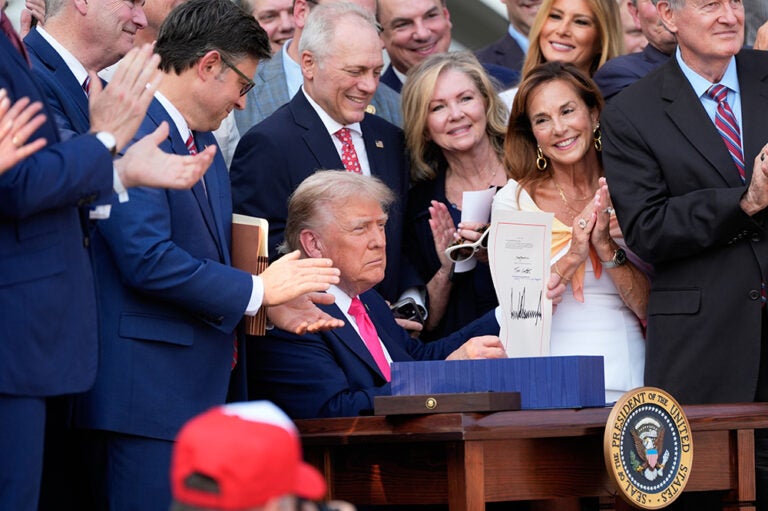Political disagreements over the national budget are not unique to the United States, but government shutdowns are — and have unfortunately occurred several times over the past few decades. Government shutdowns not only interrupt crucial services and programs, but they also impose costs on federal agencies. Here, we explain the history of government shutdowns in the United States and how other countries avoid them.
What Is the Statutory Basis for a Government Shutdown?
Before the early 1980s, federal agencies simply kept operating when appropriations had expired (known as a funding gap). The agencies minimized all nonessential operations and obligations, believing Congress did not intend for agencies to close down. Some of the activities that agencies would refrain from during this period were hiring, grant-making, and nonemergency travel.
In the 1970s, appropriation legislation started getting tied to contentious policy issues such as abortion and school integration. That caused six funding gaps in fiscal years 1977 to 1980, which ranged in duration from eight to 17 days. In 1980, reacting to those increasingly frequent funding gaps, President Carter asked the United States Attorney General, Benjamin Civiletti, to provide an opinion on how to interpret funding gaps in the context of the Antideficiency Act. The Antideficiency Act prohibits agencies from obligating or expending federal funds before an appropriation is enacted or above the amount specified in law.
Civiletti issued two opinions about the interpretation of the Antideficiency Act in 1980 and 1981, which shifted the norm from government agencies operating with limited capacity. The opinions state that federal agencies may not spend money when there are no appropriations, with a few practical exceptions. One exception is for spending money to close agencies in an orderly way. Another exception is to allow spending when there is a connection between the agency's functioning and the safety of human life or the protection of property.
There have been 15 funding gaps since the Civiletti opinions. Since many of those funding gaps occurred for a brief time, or over a weekend, there was not widespread government disruption. Five of those funding gaps, however, lasted four or more business days and broadly impacted government operations. The most recent shutdown became the longest of those five shutdowns and lasted 43 full days, from October 1, 2025, to November 12, 2025.
Do Government Shutdowns Happen in Other Countries?
Government shutdowns do not occur in peer countries because their governments do not react to a lapse in funding bills by shutting down operations. Instead, they implement shorter-term solutions (such as continuing to operate the government at the amount budgeted the year before) or longer-term solutions (such as holding elections so a new government can pass the annual budget).
In Germany, a federal parliamentary republic, delays in passing the annual budget are typical in election years. That does not stop the government from operating. Germany’s law states that if the legislature does not enact a budget before the start of the fiscal year, funding continues at the previous year’s amount to maintain institutions, meet obligations, and continue construction projects, benefits, and services. In the case that revenues and reserves cannot cover the costs, the government can borrow 25 percent of the previous year’s budget.
South Korea utilizes a presidential system, like the United States, and responds to delayed annual budgets similarly to Germany. If South Korea’s legislature is late enacting a budget, a provisional budget (conforming to the budget of the previous year) goes into effect to maintain and manage institutions established by law until the new budget is enacted.
The United Kingdom, a parliamentary democracy and constitutional monarchy, has a different reaction to an inability to pass a budget. Failure to pass a budget can instigate a vote of no confidence and then an election. It becomes the new government’s job to pass funding legislation.
Some countries allow time for the process to play out, such as Germany and South Korea. Other countries identify the inability to pass a budget as a structural problem with the current government, like in the United Kingdom. What those countries share is the understanding that their governments must not shut down because of their legislature’s impasse.
Conclusion
Government shutdowns are expensive for the government, interrupt federal programs and services, and disrupt the federal workforce. Rather than engaging in short-term budget brinksmanship, policymakers should work on bipartisan solutions to put the United States on a long-term, sustainable fiscal path.
Image credit: Photo by Samuel Corum/Getty Images
Further Reading
Lawmakers are Running Out of Time to Fix Social Security
Without reform, Social Security could be depleted as early as 2032, with automatic cuts for beneficiaries.
Budget Basics: How Does Social Security Work?
Social Security is the largest single program in the federal budget and typically makes up one-fifth of total federal spending.
How Did the One Big Beautiful Bill Act Affect Federal Spending?
Overall, the OBBBA adds significantly to the nation’s debt, but the act contains net spending cuts that lessen that impact.


